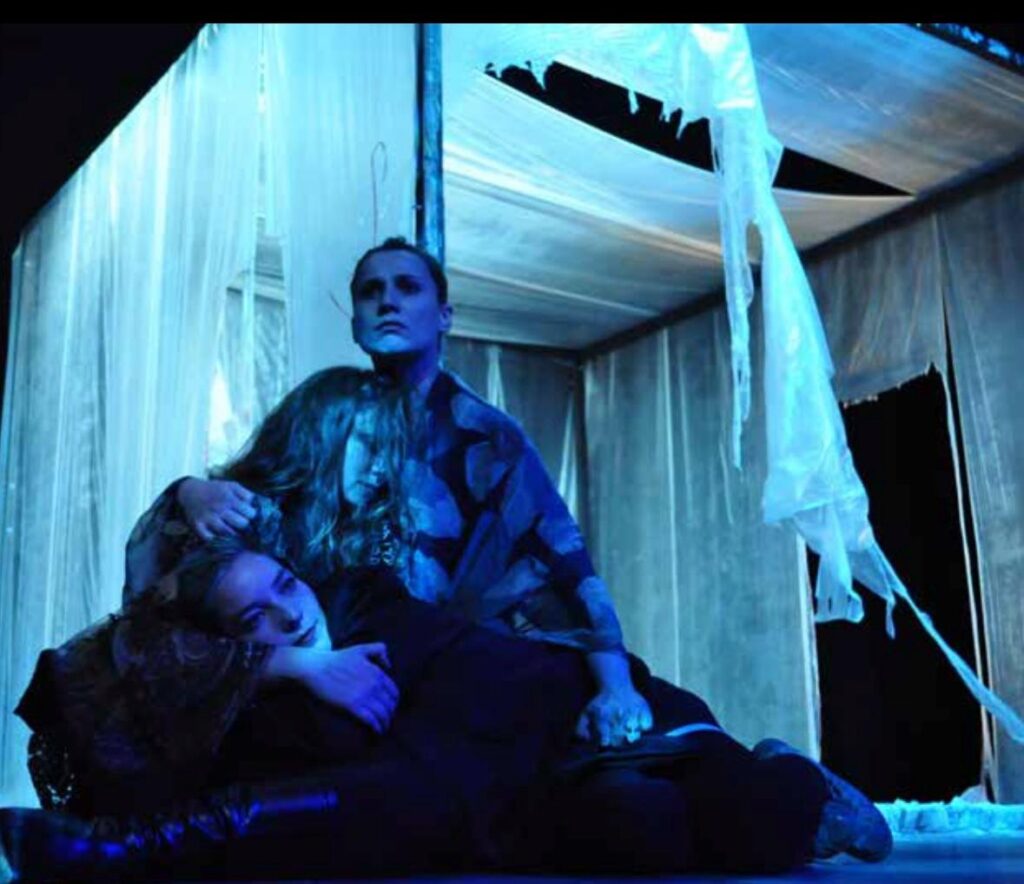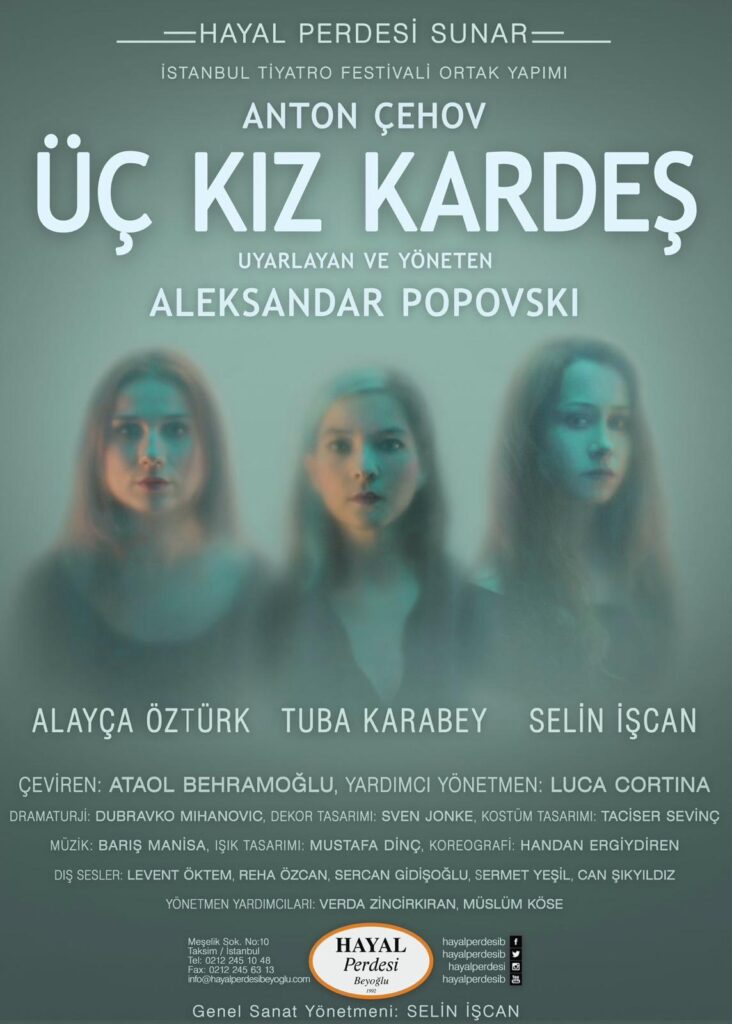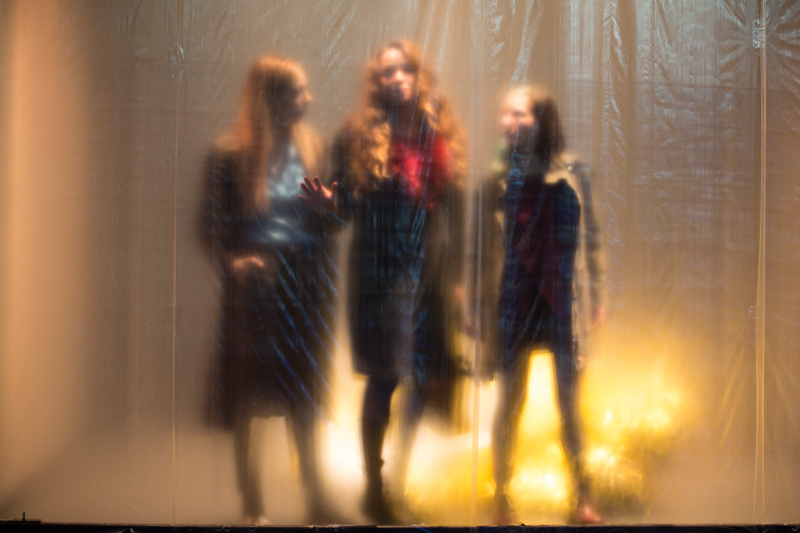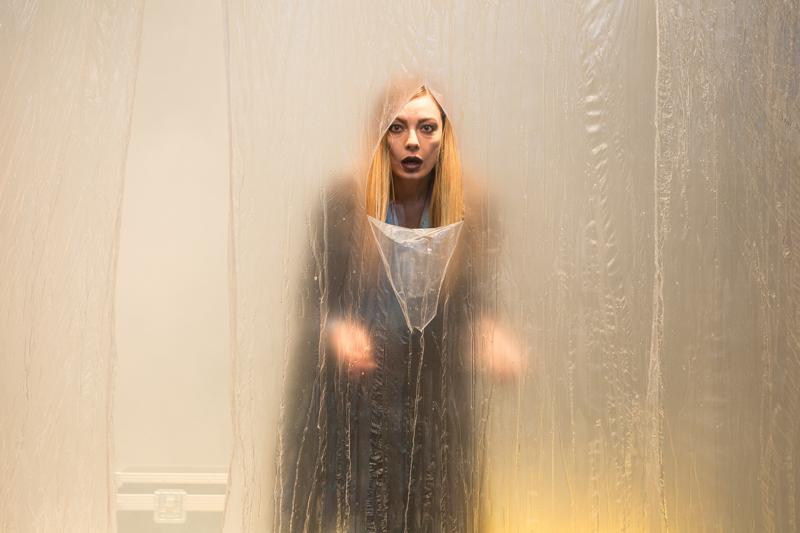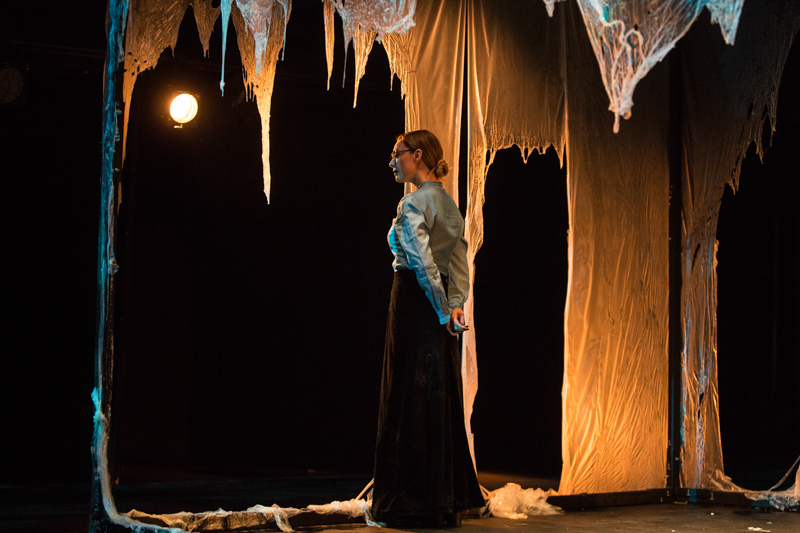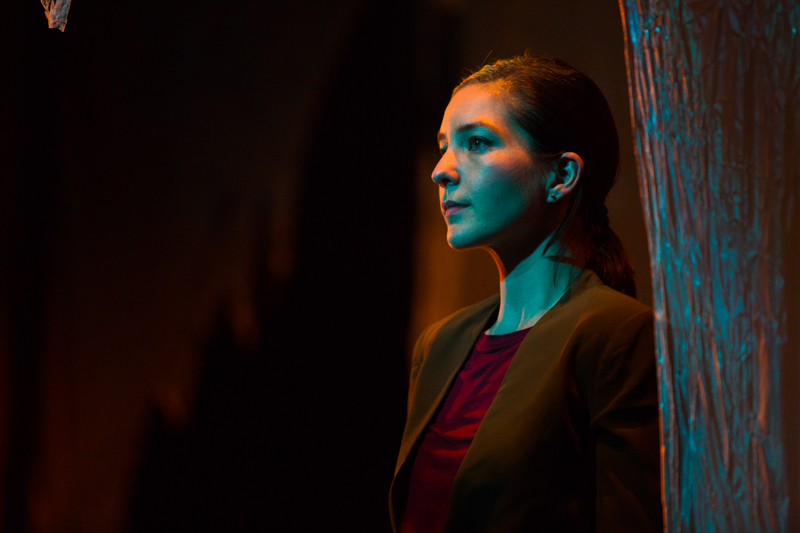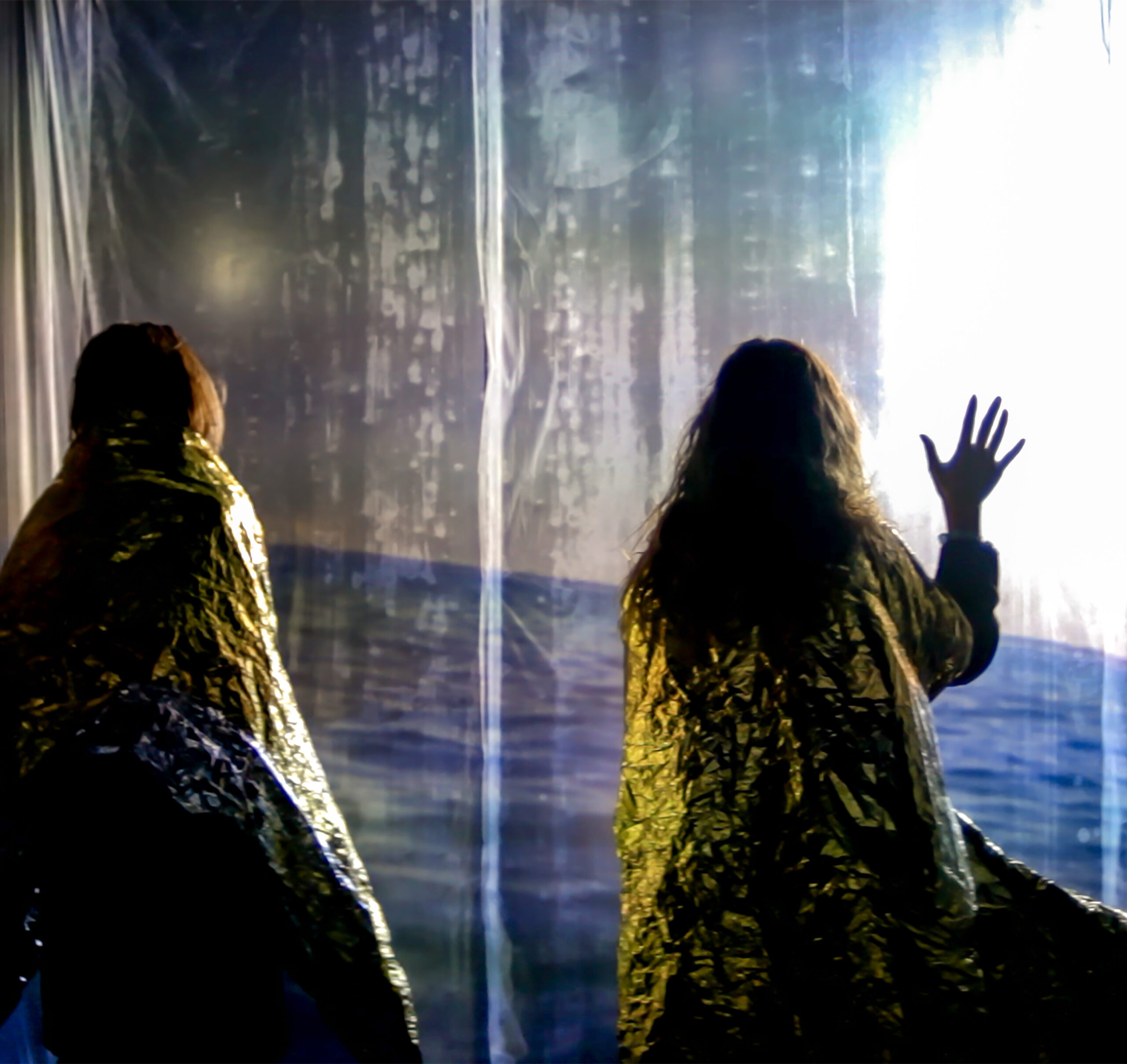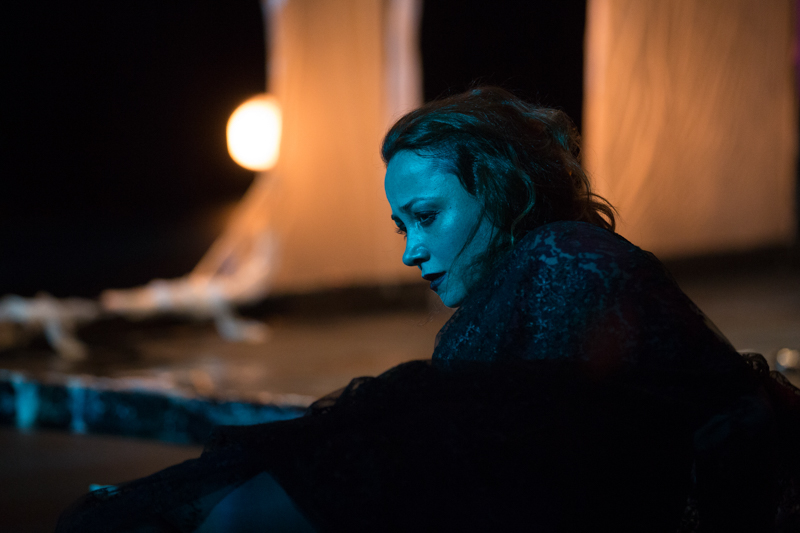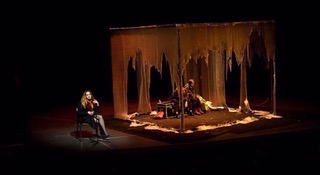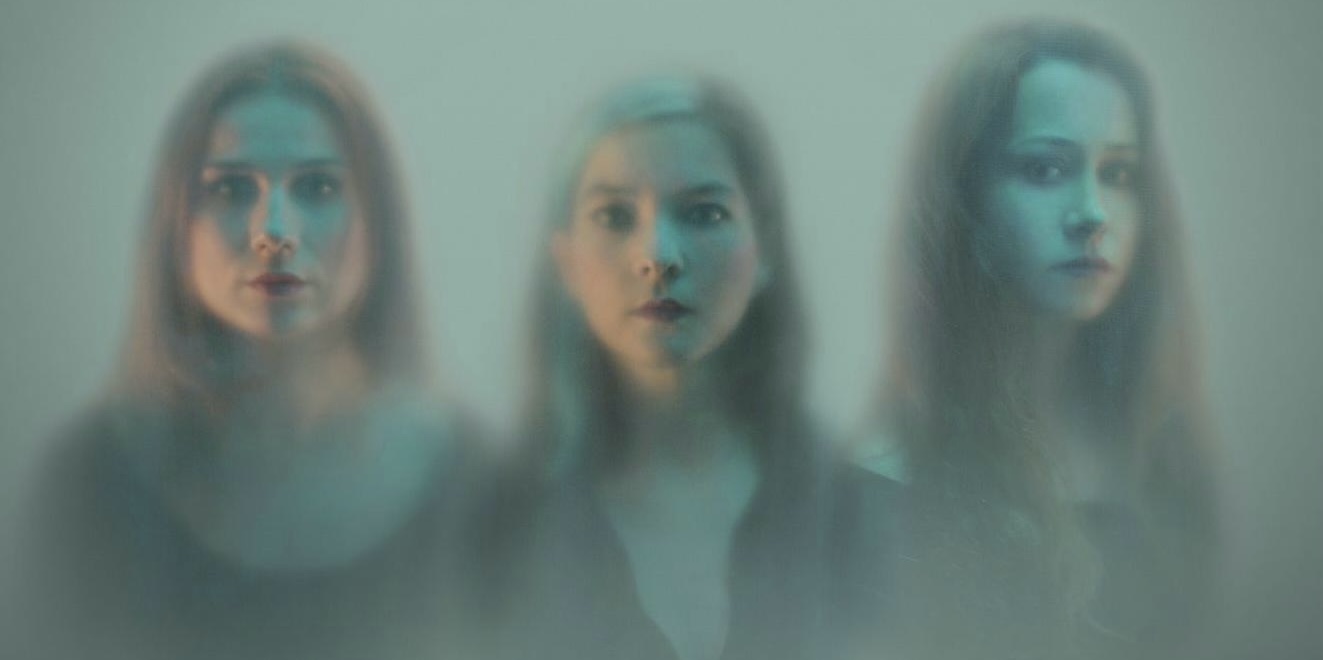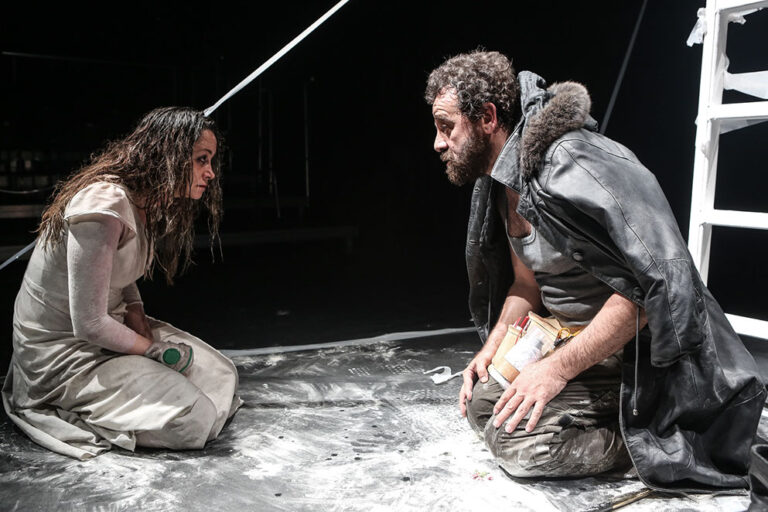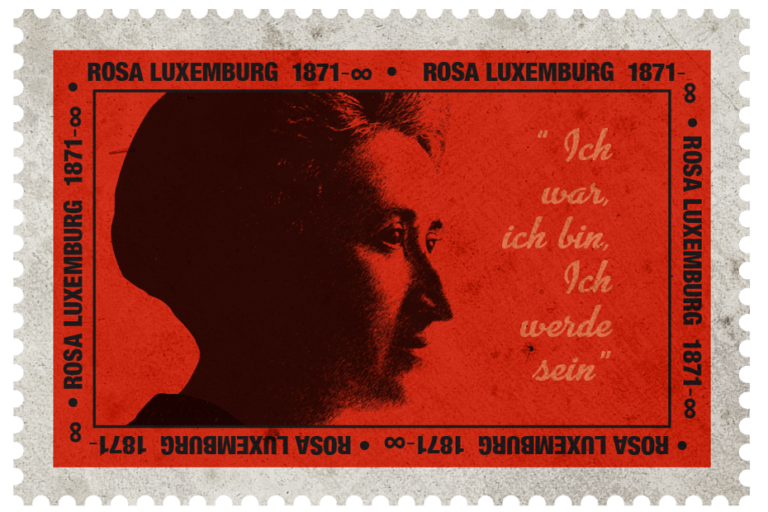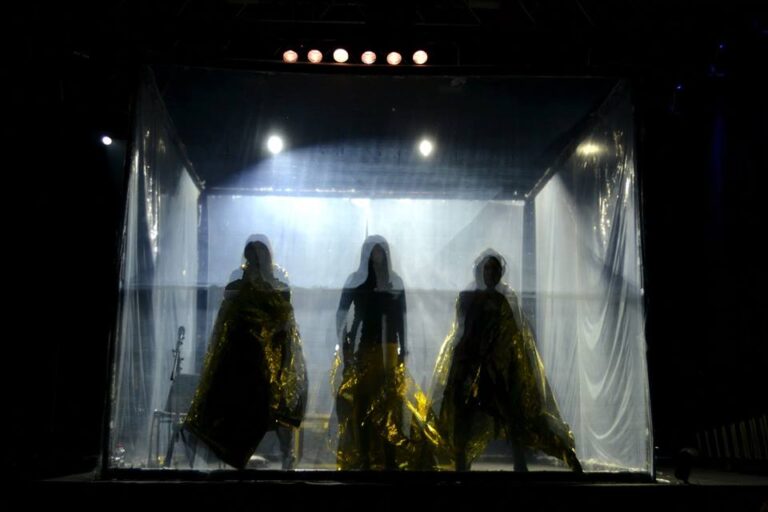“After all, what, in fact, is the differenece between that which is and that which was?”
(A. P. Chekhov, “The Three Sisters”)
Three girls are waiting at the border. They would like to go from the East to the West like most people, in search of a better life. They are fleeing from the war and leaving deprivation and insecurity behind, perhaps even trying to run from themselves. While they are waiting to cross thatimaginary line which was once drawn on the world map, waiting to make sure that their papers are “in order”, waiting to enter Europe, where, it seems, some safer, more prosperous world is calling for them, they start to utter and subsequently perform fragments from Chekhov’s play. The fact is that the girls are actresses and their wish is to go to Berlin, where they intend to stage a small, independently produced, chamber version of “The Three Sisters” with the director and a few collaborators gathered here and there. Thus, Masha, Olga and Irina start to come alive in the vacuum between the two countries’ borders, between the borders of two civilisations, in the space between the private and the theatrical, the documentary and the written word, the experienced and the imaginary. Their personal experiences mix with the biographies of the three sisters so it is hard to tell whether the fire they are talking about has recently occured in one of the war-torn eastern countries or whether it is the case of the fire that struck the Russian provincial town in a play written many years ago. Also, we can’t tell for sure if the officer one of the sisters falls in love with is a literary character or an actual person. The similarities are many, loneliness is still present as is the waiting. “I think to myself: something similar happened many years ago, when the enemy suddenly attacked, pillaged and plundered…”, says one of the sisters reminding us of the vicious cycle of history, of the recurring catastrophes. Irina’s famous wistful cry “To Moscow! To Moscow! To Moscow!” has perhaps changed today into “To Berlin! To Berlin” or “To the West!” and it is no longer just wistful, but the longing hasn’t changed that much. The refugees who are arriving to Europe, the people who take that journey and wait, hope and struggle, they get the chance to talk to Chekhov’s characters, sharing with them words filled with anxiety and fragility, strength and dreams…
Hayal Perdesi presents an unconventional rendition of “Three Sisters”, combining the innovative direction of award-winning Macedonian director Aleksandar Popovski with the contemporary stage design of Sven Jonke. The cast of the play includes award-winning actresses Alayça Gidişoğlu, Selin İşcan, and Tuba Karabey
After six months of preliminary work, the play came to stage through the collaboration of Turkish, German, Macedonian, Italian and Croatian artists. A product of multicultural collaboration, the production was staged at the Theatre Tremplin in the 50th Avignon Off Festival from July 7th to 17th 2016 following the Istanbul Theater Festival.
Renowned French playwright-critic Gilles Costaz’s review of the play he watched in Avignon highlighted: “With these three young and great actors, Aleksandar Popovski has created a theater that offers rare happiness through the theme of unhappiness, poor, wild, and skillful.”
The Three Sisters
adapted from Anton Chekhov
Credits
Hayal Perdesi Theatre in co-production with the Istanbul Theatre Festival
